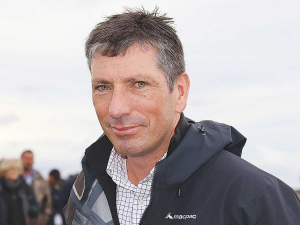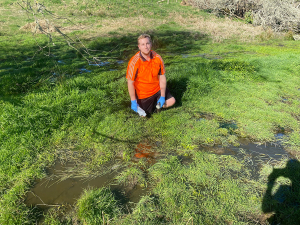People should be able to eat red meat and not feel guilty about it, according to Beef+Lamb NZ chief executive Sam McIvor.
He says some of the narrative from the alternative protein lobby groups is starting to resonate in the community to the point where people are being made to feel guilty about eating red meat. He says that commentary needs to be countered.
“The way these people [alternative protein lobby] have marketed themselves is that they have cast aspersions on natural meat production,” he told Rural News. “The two angles that they come from is the negative impact of red meat production on the environment and the animal welfare aspect.”
McIvor says what is concerning is that lobby groups have become effective in influencing policy makers, to the point where the world cancer organisation has questioned the role of meat in the diet.
“We also see government departments, including our own Ministry of Health, starting to talk about taking meat out of the diet because of environmental impacts. What we are seeing is a growing societal commentary around meat with people raising issues such as whether it is ‘safe’ in their diet as well as environmental and animal welfare issues.”
But McIvor says the reality is that there is large bunch of people who like meat in their diet and argue, equally convincingly, that meat is good for you and that it is a sustainably produced product. But he says in some circles of society speaking out in favour of meat is often questioned.
“People who love meat should not be made to feel guilty about their choice because there are compelling arguments in favour of their preference.”
He says opponents of red meat should be reminded that in NZ, animals are ‘free range’, that NZ is ranked number two in the world for animal welfare and – as a country – we have an absolute commitment to the environment.
McIvor points out that NZ meat producers don’t use hormone growth promotants and make minimum use of antibiotics to treat our stock. He says those who criticise our farming systems should be aware that 1.4 million hectares of land is held in native bush on NZ’s sheep and beef farms.
He adds that many countries have the highest regard for NZ meat products and says China, for example, sees meat as a product which is special to their people’s health and wellbeing and that is a driver for their consumption of meat.
“I was on a call with the chief executive of the National Beef Cattleman’s Association in the USA recently and he was talking about what has happened with meat consumption there through the Covid situation,” McIvor told Rural News. “He told me that they have evidence that in supermarkets, red meat has sold out, while artificial meat was still on the shelves unsold.
“He made the interesting observations that people have gone back to the things they know and they can trust such as red meat,” he says.











